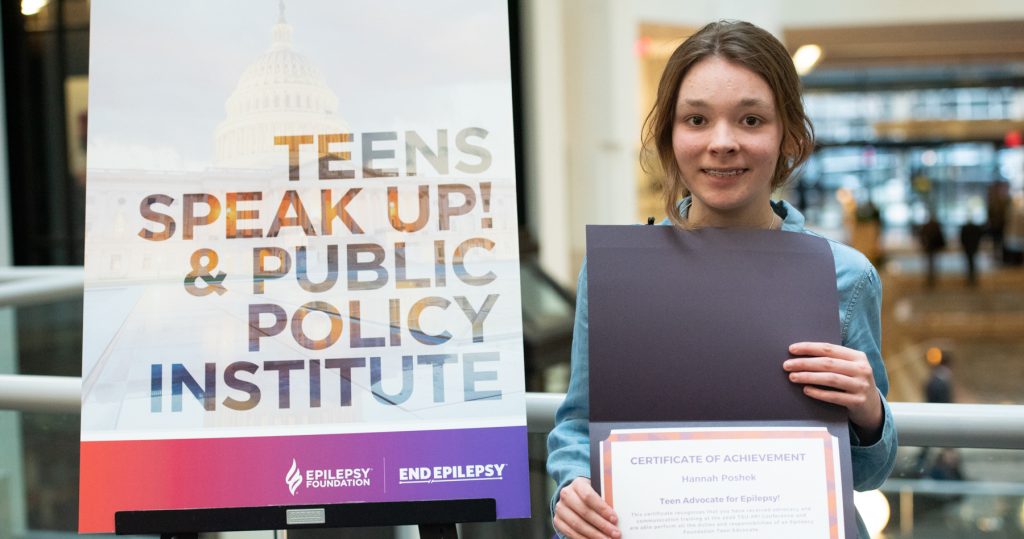Hannah Poshek had quite the childhood, and now as a teenager she’s accomplishing even more. She first joined the Minnesota Wild Special Hockey program as a kid, and after gaining greater seizure control as an 8-year-old she started even more activities, like swimming, gymnastics, dance, and competing in Special Olympics.
Hannah’s involvement came with strong support and encouragement from her parents, Chris and Sheila. After they got over the initial concern for her safety, that is. Something all parents can understand.
“We were certainly concerned to some level, but seeing her grow and become stronger, both physically and socially, has outweighed the fear. We realized early on that being active and involved was a huge advantage to Hannah continuing to be healthy. In order for Hannah to become the person she wants to be, we had to set aside our nerves and concerns and allow her to flourish,” says her mom Sheila.
This led to Hannah being featured on the cover of the MediKidz comic book “Playing Sports with Epilepsy” in 2016 alongside Olympic hockey player Chanda Gunn, who also has epilepsy. More recently, Hannah won three gold medals and a silver at the 2019 Special Olympics State Gymnastics meet and was named the 2019 Minnesota Special Hockey Athlete of the Year.
“She started hockey with Minnesota Wild Special Hockey at 7-years old and had only taken a couple of skating lessons. She was the kid in the middle of the ice-making ice angels or talking to other players, and became a social butterfly in the league. She even sings the National Anthem at games and tournaments,” says Chris.

The Poshek’s have become a powerful team of epilepsy advocates over the past year. They traveled to Washington D.C. in March to meet with their legislators’ offices and for Hannah to take part in the Epilepsy Foundation Teens Speak Up advocacy program.
“I LOVED the dance party and meeting kids from other states,” says Hannah.
When they met with their legislators in Washington D.C., as well as more recently through virtual visits and their involvement in a Virtual Town Hall in July about returning to school, the Poshek’s are able to talk about the effects of epilepsy in two ways. One, Hannah growing up with epilepsy. Two, that her dad Chris also has epilepsy.
“I just want her to know that just because she has epilepsy that she can still do anything she puts her mind to,” says Chris.
It’s certainly true that for the first 16 years of her life Hannah has been doing whatever she puts her mind to. First, it was getting involved in different sports that “keep my blood pumping,” as she puts it. Now, it includes advocating for the epilepsy community as well as herself.
“I got to work with the foundation last year and make my school a Seizure Smart School. I helped train my entire class and spoke in front of all my friends about living with epilepsy and what to do if someone has a seizure. I plan to speak to one of my classes this year too, so they know what to expect if I have one of the tonic-clonic seizures that I just started having,” says Hannah.
It’s easy to see just how busy the Poshek’s are. In addition to their daily lives of school and work they keep finding new ways to stay active, have fun, and make positive change. Most of which can be tied back to their unique relationship with epilepsy.
“Seizures have become far too much of a “norm” in our world. With the advocacy and involvement that we’ve had with the foundation, we’ve met so many families living the same life. We’ve learned, together, to make plans and do what we want to do – we haven’t let it slow us down, and it’s likely forced us to appreciate each day a little more,” says Sheila.
